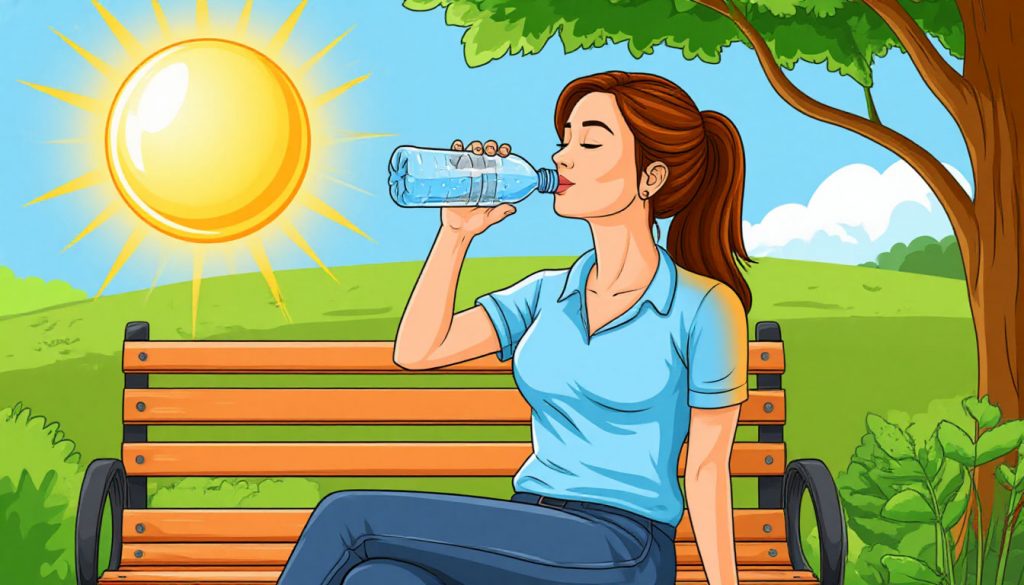High temperatures can pose serious risks to health, especially for young children, older adults, people with chronic conditions, and those working or exercising outdoors. Prolonged heat exposure can lead to dehydration, heat exhaustion, or even heat stroke — a life-threatening condition that requires immediate attention.
Even if you feel fine, your body may be struggling to maintain its normal internal temperature. That’s why it’s crucial to take proactive steps during heatwaves or prolonged hot days.
Tips for Staying Cool and Safe
- Stay Hydrated
Drink water regularly, even if you don’t feel thirsty. Avoid alcohol, sugary drinks, and too much caffeine, as they can dehydrate you. Add a pinch of salt and lemon to water for replenishing lost minerals if sweating heavily. - Dress Smart
Wear light-colored, loose-fitting clothes made of breathable materials like cotton or linen. A wide-brimmed hat and UV-protective sunglasses can help protect your head and eyes from the sun. - Limit Outdoor Activity
Avoid strenuous physical activity during the hottest parts of the day (typically from 11 a.m. to 4 p.m.). If exercise is necessary, do it early in the morning or after sunset. - Stay in Cool Places
Use fans, air conditioning, or cool showers to lower body temperature. Spend time in public cooling centers, libraries, or shaded parks if your home lacks adequate cooling. - Eat Light Meals
Opt for foods with high water content, like fruits and vegetables. Avoid heavy, hot meals which can increase body heat. - Protect Your Skin
Apply sunscreen (SPF 30 or higher) every two hours when outdoors. Sunburn reduces the skin’s ability to cool the body and increases the risk of heat-related illnesses. - Check on Others
Make sure elderly relatives, neighbors, or people with health issues are staying cool and hydrated. Pets should also have access to shade and fresh water at all times.
Warning Signs of Heat Illness
Be alert for symptoms such as:
- Dizziness or fainting
- Nausea or vomiting
- Headache
- Rapid heartbeat
- Confusion or slurred speech
- Dry, hot skin (a sign of heat stroke)
If someone shows these signs, move them to a cool place, offer water, and seek medical help immediately.
Glossary
- Heat stroke — a severe condition caused by the body overheating, potentially resulting in organ damage or death.
- Dehydration — a condition where the body loses more fluids than it takes in, affecting normal functions.
- UV protection — defense against ultraviolet radiation from the sun, which can damage skin and eyes.
- Cooling center — a public location offering air-conditioned space during extreme heat events.


